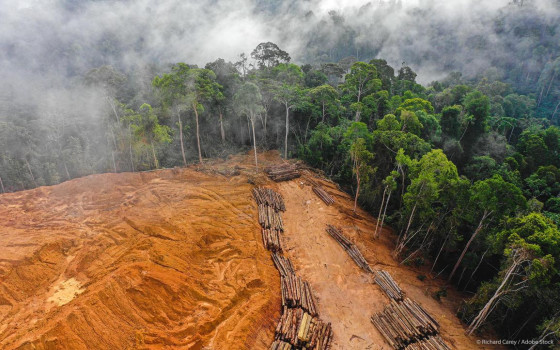
Call to invest in prevention to combat climate change-related wildfires

- Europe and Arabs
- Saturday , 25 January 2025 8:27 AM GMT
New York: Europe and the Arabs
The deadly wildfires that swept through the Los Angeles area in the United States, destroying entire communities and causing billions of dollars in damage, have revealed why countries must invest more in stopping these devastating fires before they start. According to the UN Daily News Bulletin, which we received a copy of this morning,
Amy Duchelle of the Food and Agriculture Organization (FAO) said this is absolutely essential, as wildfires are rapidly increasing in intensity, frequency and duration due to the climate crisis and changes in land use.
Duchelle told UN News: "Historically, there has been a very strong interest in suppressing fires. But there needs to be more intention and investment in prevention."
The FAO Chief Forestry Officer and Head of the Forests and Climate Team explained how FAO is helping countries promote integrated fire management and why everyone must play a role.
Here are the details of the interview with FAO official, Amy Duchelle.
Amy Duchelle: Wildfires require three basic ingredients: a fuel source, hot and dry weather, and a source of ignition. The situation in Los Angeles had all three of these components to a severe degree, including strong winds that kept these fires burning out of control.
Fires are nothing new to humanity. Humans have used fire for thousands of years, and it is in fact a traditional and important tool for land management and agriculture for small farmers and indigenous peoples, especially in developing countries.
Fires have also been part of the Earth’s system for hundreds of millions of years, occurring in every terrestrial plant environment and on every continent except Antarctica. But we are seeing patterns changing now in terms of the intensity, frequency and duration of extreme wildfires.
UN News: Do we know how much of the world’s land is affected by wildfires, and what some of the implications are?
Amy Duchelle: It is estimated that between 340 and 370 million hectares of land surface are affected by fires each year, including approximately 67 million hectares of forest and woodland areas.
A lot of the time, the public’s attention to wildfires is the situation we have now in Los Angeles, where the images of devastation are so horrific. I think – and many people say this – that we are in a new era in terms of climate change-driven wildfires, catastrophic wildfires, and so the approach to dealing with these fires needs to be different.
Historically, there has been a very strong focus on suppression, but there needs to be more intention and investment in prevention, and really dealing with the issue of wildfires before they start burning. Many countries have used a lot of these aspects, but there needs to be more work.
UN News: You mentioned the role of climate change in wildfires. The World Meteorological Organization has confirmed that 2024 was the hottest year on record. As you said, we are in a new era.
Amy Duchelle: Projections show significant increases in the intensity, frequency and magnitude of wildfires in the coming years, and that is very worrying, also because wildfires are not only fueled by these warmer conditions, but they are also releasing carbon dioxide into the atmosphere, which further contributes to the climate crisis, and then it becomes a vicious cycle that is difficult to get out of.
UN News: Can you tell us about FAO’s work on wildfires?
Amy Duchelle: FAO has a long-standing programme to promote integrated fire management. We’re trying to do exactly what I was talking about before: support countries in increasing their capacity for integrated fire management with a greater focus on prevention rather than just suppression and response.
We’re promoting a five-pronged approach; the first is to review and analyse the fire situation in a country or a place, the second is to reduce risk, which really means understanding how to reduce the risk of devastating wildfires.
The third is to prepare, which is to have protocols and procedures in place to deal with wildfires when they happen. The fourth is to respond. Wildfires are going to continue to happen, and you need to have good firefighting, good response mechanisms and teams in place.
The fifth is to recover, not just infrastructure and urban destruction, but also ecosystems. The UN Decade of Ecosystem Restoration (2030-2032) that we’re in now is really a way of promoting recovery after fires.
UN News: You mentioned firefighting. Does that mean that countries should change their approaches to firefighting, for example focusing on areas of homes and land rather than individual homes or sites?
Amy Duchelle: I think the Los Angeles fire really highlighted the limits of suppressing fires when they’re burning out of control. You can have the best firefighting system in the world, and California is famous for its firefighting capabilities, but even in a context like this, there are limits to suppressing wildfires.
That’s the main reason why we need to shift the focus to prevention, risk reduction and preparedness. And so much investment has gone into response and then recovery, and that’s very expensive. The damage and loss from these catastrophic fires is in the billions of dollars, and more financial investment in prevention could reduce the costs of actually dealing with response and recovery.
UN News: What can the public do to support prevention, risk reduction and preparedness?
Yemi Duschel: This is a community-wide issue, and everyone has a role to play. I think another thing we’re starting to understand is that the concept of fire seasons is changing and that this is an issue that needs to be addressed year-round, even when these fires aren’t burning. Most fires have primary human causes, so it’s important to understand whether it’s an accident, whether it’s negligence, whether it’s the way the infrastructure is built, and to understand that there are ways to promote integrated fire management behavior through education; any kind of collaborative approach at all levels. This is not just a forestry issue of course. It’s a cross-sectoral issue at all levels of society.


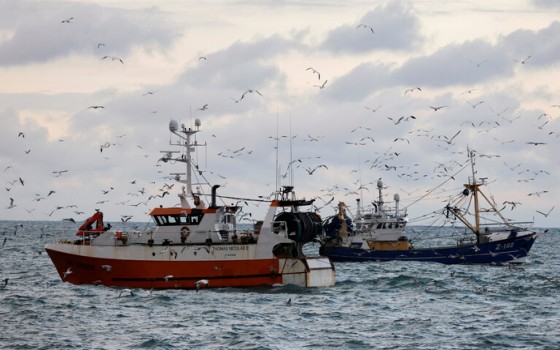

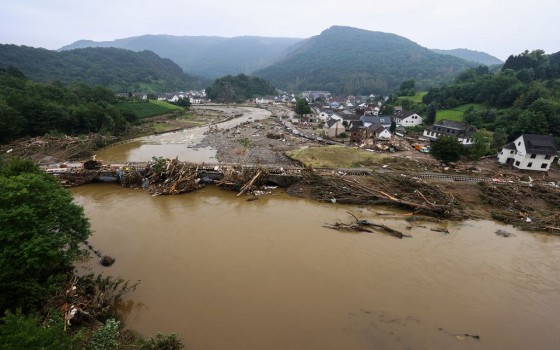
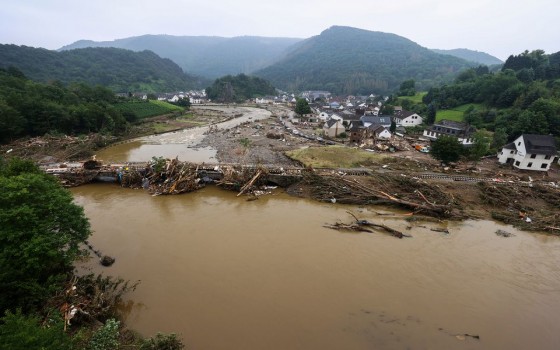


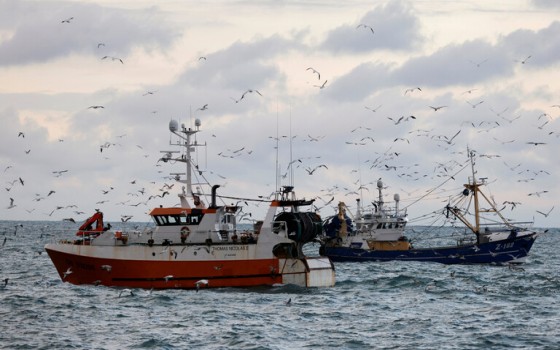



No Comments Found